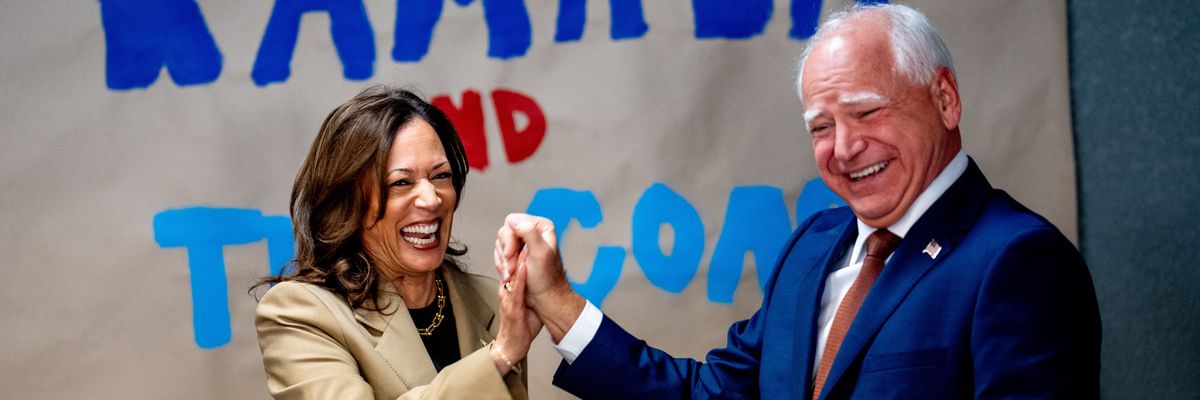The Democratic ticket of U.S. Vice President Kamala Harris and Minnesota Gov. Tim Walz is sparking a level of enthusiasm among party supporters and the general American public reminiscent of former President Barack Obama's transformative election in 2008. This excitement is palpable, driven by a combination of Harris' historic candidacy and Walz's grounded Midwestern appeal, on top of their strong records and qualifications.
Yet, maintaining this momentum requires more than charisma, qualifications, and historical firsts; it demands a robust policy platform that addresses the urgent needs of Americans and reflects the core values of the Democratic base.
This election will ultimately come down to turnout of the Democrat's working-class base. Harris signaled she understands this through her selection of Walz as her running mate, over "safer" bets more appealing to conservatives in swing states.
As Democrats gather in Chicago, the Harris/Walz ticket has a golden opportunity to present a bold, transformative platform that can energize the party and win big.
But for many "base voters" struggling to make ends meet, an exclusively anti-Trump message simply wonʻt cut it. Our communities are looking for common-sense solutions to the most fundamental problems we face. As the Democratic National Convention approaches in Chicago, it's crucial that the Harris/Walz ticket prioritizes three key pillars to solidify, expand, and energize their support base to show up big through November.
1. Cut the Cost of Living and Make Housing Affordable
Across the nation, Americans are grappling with rising housing costs that are increasingly out of step with their incomes. For too many, the dream of homeownership—or simply the security of affordable rent—is slipping away. The Democratic platform must commit to bold measures that ensure housing is not a privilege of the rich but a right accessible to all. This includes expanding funding for affordable and social housing projects, offering incentives for cities and states to cut red tape that hinders construction, and implementing rent controls to keep predatory landlords in check. By making housing affordability a cornerstone of their campaign, Harris and Walz can address a fundamental source of economic anxiety for millions.
2. Invest in Union Jobs, Public Infrastructure, and the Environment
The climate crisis poses one of the greatest threats to our health and safety. Tackling this issue head-on presents an opportunity to revitalize the American economy and workforce. While the historic Inflation Reduction Act and the Bipartisan Infrastructure Act represent a solid step, the Harris/Walz ticket must champion further public investments that not only aim to drastically reduce carbon emissions but also transform our food and transportation systems. These initiatives should be designed to create high-paying, unionized jobs that provide lasting employment across the country. Furthermore, environmental justice must be at the forefront of this plan, ensuring that communities historically impacted by pollution and climate change are the first to benefit from these new opportunities.
3. Promote Peace and Diplomacy Abroad
Foreign policy is often a contentious and overlooked area of presidential platforms, but this year, it's risen to a deciding factor for the super majority of likely Democratic voters in key states. The ongoing conflict in Gaza and the substantial U.S. military support for Israel demand urgent reevaluation. Harris and Walz should courageously pivot U.S. foreign policy by advocating for a cessation of arms sales to Israel, focusing on diplomatic resolutions to the conflict, and underscoring the importance of human rights and international law. This stance would not only align with the values of a significant portion of the Democratic base but also position the United States as a leader in ethical foreign policy.
As Democrats gather in Chicago, the Harris/Walz ticket has a golden opportunity to present a bold, transformative platform that can energize the party and win big. By committing to these three critical areas—housing affordability, green jobs, and a new direction in foreign policy—they can offer a vision of a fairer, more prosperous, and more just America. This is the path to not just winning an election, but to making historical progress that will resonate for generations to come.
